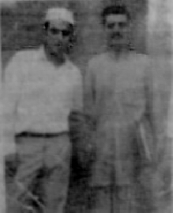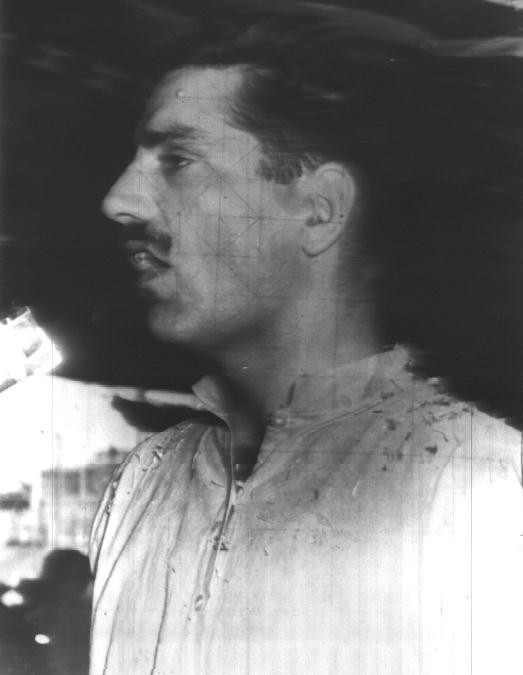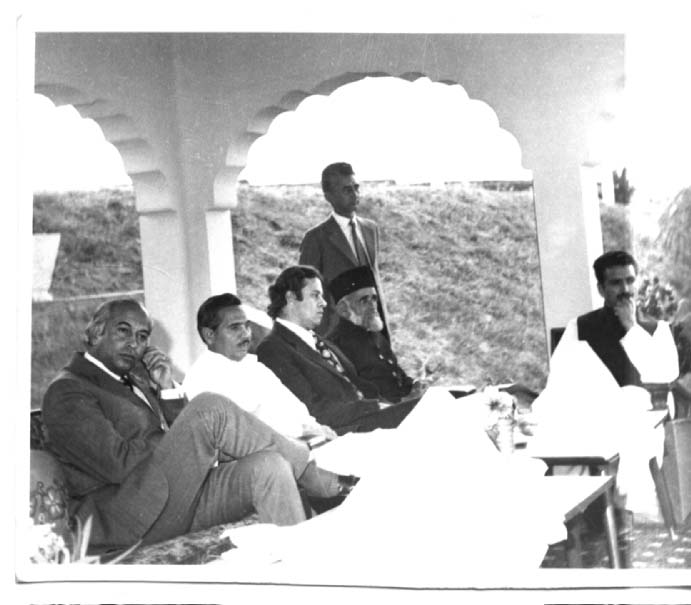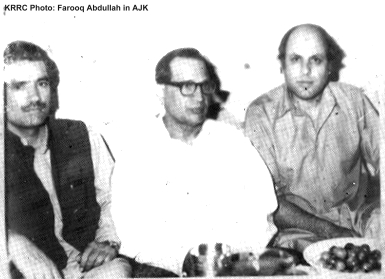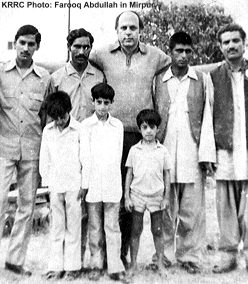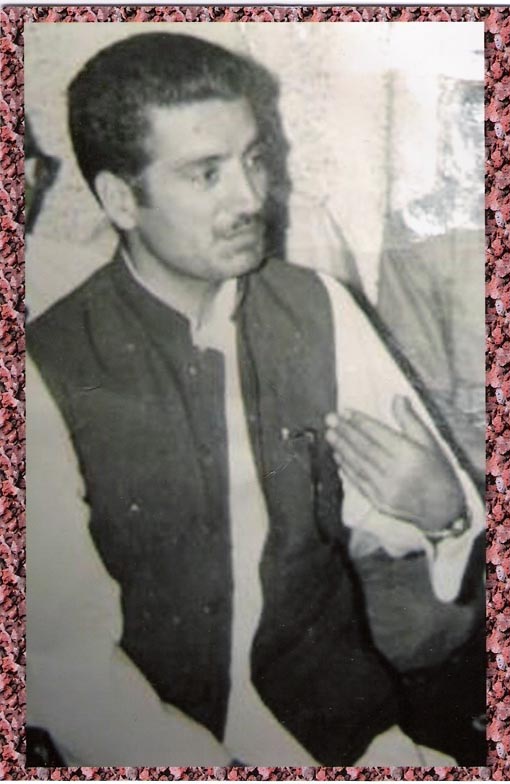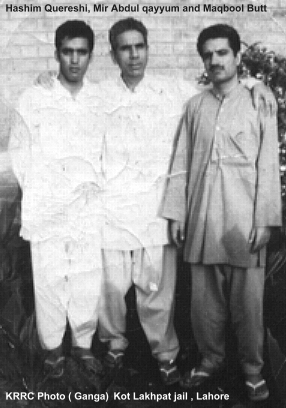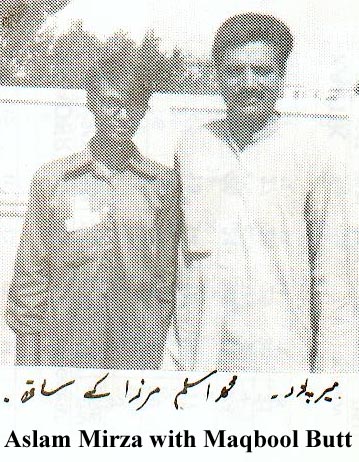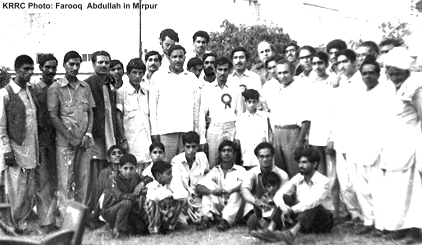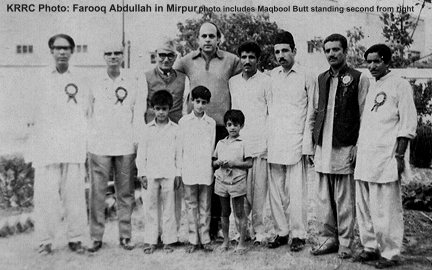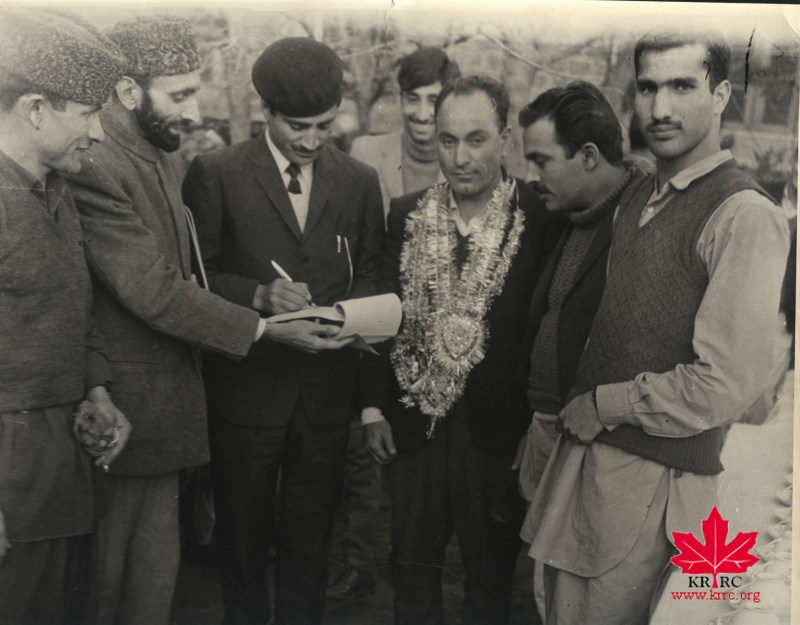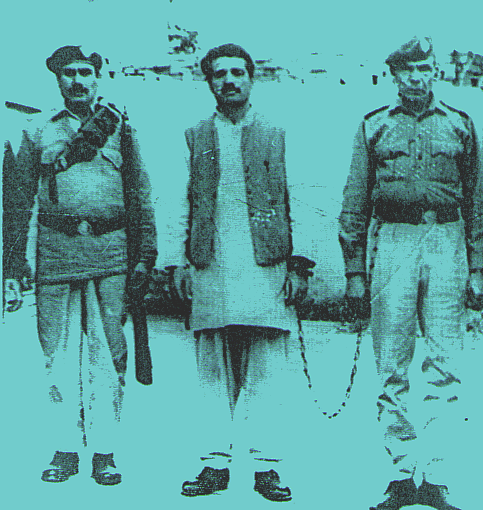|
Shahjahan Afzal
Kupwara, Feb 10: Residents of Trehgam, Kupwara are proud of being the inhabitants of the native village of Maqbool Bhat. "His hanging changed not only the course of Kashmir struggle, but also resulted in a drastic change in the political thinking of Kashmiris," believes Parvaiz Ahmad Bhat, nephew of Maqbool Bhat. Bhat was hanged on February 11, 1984 on the charges of murder in Tihar jail. But people here believe that Bhat was hanged for political reasons as he set the struggle for freedom in motion in Kashmir. "After his hanging, Maqbool Bhat has emerged as 'Shaheed-e-Millat' exemplified by his struggle against Indian rule in Kashmir. But when he started his campaign in 1960 there were few to understand him. He tried hard to educate his people about their political rights, but the Kashmiris did not heed Bhat at the time," maintains Ashaq Hussain, a local social worker. "At the time of his hanging there were no protests or strike in Kashmir. But his death later gave a whole new generation of Kashmiris a reason to fight Indian rule in Kashmir and his hanging came to be revered as a new resolve and strength of Kashmiri nation," said Habibullah, a resident of Trehgam. "Unfortunately Bhat's body was not handed over to his relatives and he was laid to rest inside Tihar jail premises. Bhat is perhaps the only Kashmiri pro-freedom leader whose martyrdom inspired tens and thousands of youth all over the valley and outside who joined the armed rebellion after his death and gave a new dimension to the movement," he added. Terming the hanging of Bhat a cold blood murder, Bhat's niece Mubeena Akther told Rising Kashmir, "His hanging was a custodial killing and the present struggle is result of his martyrdom." |
'He changed course of Kashmir struggle'
- Details
- Hits: 2450


